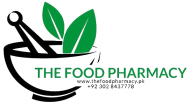TFP Library

“The prospect of discovering compounds that improve the brain is tantalising, but does the hype match the research?”
The comedian and actor Hannah Gadsby quipped in her hit show Nanette that she identified as [pause for dramatic effect] “tired”. In a monologue that resonated with many hard truths, that one particularly struck home for me.
The common refrain is so many of us are exhausted, have trouble sleeping, can’t concentrate, and can’t seem to get even simple tasks done without a baffling amount of procrastination.
It’s hardly surprising therefore that a large and lucrative market has sprung up dealing in so-called “natural” brain boosters, or nootropics; over-the-counter supplements, drinks and other products claiming to improve brain health and cognitive performance, sharpen memory, reduce tiredness, lift mood, and even slow age-related neurodegeneration. Already valued at US$2.2bn globally, by some estimates, the market is forecast to grow to US$4.4bn by 2032.
The list of brain-boosting ingredients in these products, ranging from drinks to cookies, spans the familiar, such as caffeine, to the less well-known; products such as ayahuasca, ashwagandha, bacopa and L-theanine. Some are newly discovered, others have been used in traditional medicines for possibly thousands of years.
But, as with so many over-the-counter products, there’s a big question mark over whether any have adequate scientific evidence to back their claims.
The short answer, according to Prof Kaarin Anstey, director of the UNSW Ageing Futures Institute, is that they don’t. “There’s been a lot of work done on supplements and the conclusion is that it’s not worth investing in supplements,” Anstey says.
That doesn’t mean that nootropic chemicals and compounds found in foods or drinks don’t have effects on the brain and central nervous system, as anyone who’s ever had too much coffee or taken a guarana-based energy drink to try to pull an all-night work marathon can attest. There is growing evidence that some plant-derived compounds do affect the brain in a variety of ways. Researchers are looking more closely at these mechanisms in the hope that it could lead to better prevention or treatment of age-related neurodegeneration and diseases such as dementia. However, when it comes to improving a healthy brain with supplements, the gap between what scientific evidence hints at and what companies claim is particularly wide.




